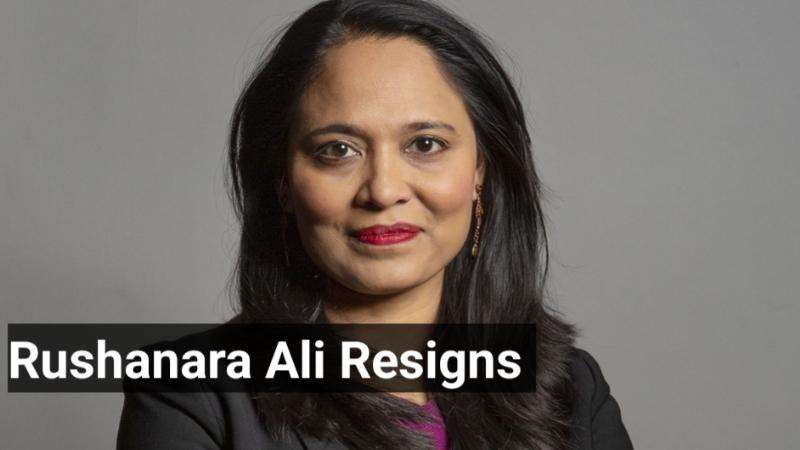Tulip Siddiq became more controversial by clinging to her position instead of resigning immediately. On the other hand, Rushanara Ali demonstrated her political competence by resigning right at the start of the controversy, preventing the matter from escalating further.The swift resignation of two ministers from other ethnic communities is an unprecedented event in recent memory. Unfortunately, this kind of incident in mainstream British politics is unlikely to cast Bangladeshis in a positive light.
The Downfalls of Two Ministers
Tulip Siddiq, who served as Economic Secretary to the Treasury, also known as City and Anti-Corruption Minister, resigned on January 14, 2025. Her departure came amid intense scrutiny over her alleged financial ties to her aunt, the deposed Bangladeshi Prime Minister Sheikh Hasina, and accusations of corruption in Bangladesh and Russia. The controversy intensified after Bangladesh's interim government filed a criminal case against Siddiq, accusing her of misusing her position to illegally acquire land. While a government ethics adviser found no breach of the ministerial code, Siddiq stated that continuing in her role would be a "distraction" from the government's work.
Rushanara Ali, the Minister for Homelessness and Rough Sleeping, followed suit on August 7, 2025, just thirteen months into her role. Her resignation was triggered by public and political outrage after it was reported she evicted tenants and then increased the rent on her East London property by £700 a month. This act was widely condemned as "staggering hypocrisy" by critics. This was not Ali's first controversy; she had previously lost her building safety brief in October 2024 following complaints from families of the Grenfell Tower fire victims after she attended a conference sponsored by Saint-Gobain, a firm criticized during the Grenfell inquiry. In her resignation letter to Prime Minister Keir Starmer, Ali maintained that she had followed all legal requirements but agreed that remaining in her role would be a "distraction."
A Broader Leadership Crisis
These resignations have highlighted a growing concern within the British-Bangladeshi community that its political leadership is failing to meet the standards set by other ethnic minorities. Despite a large population of British-Bangladeshis, with a strong concentration in London, the community has seen other ethnic groups, such as British-Indians and British-Pakistanis, achieve greater political success. A former British-Indian Prime Minister and a British-Pakistani Mayor of London are frequently cited as examples. On the other hand,the word 'controversial' has become an adjective consistently associated with Tower Hamlets Mayor Lutfur Rahman in many news reports.
Critics argue that a lack of unity, coupled with a focus on personal gain and rivalries, is a major impediment. The absence of any British-Bangladeshi on this year's New Year Honours list is also viewed as a worrying sign. These events, combined with past controversies involving other British-Bangladeshi councillors, suggest a pattern that threatens to tarnish the community's reputation.
Bangladeshi people are comparatively far behind in mainstream politics. A major reason for this is that even after nearly 250 years, we lack a widely acceptable, uncontroversial, and relatively "clean" leader in British politics.
Hopes were high for Tulip and Rushanara, representing a new generation of British-Bangladeshi politicians. But their quick resignations on corruption rumors have instead become a source of deep disappointment and shame. Both resignations were linked to accusations of financial impropriety.These failures serve as a sobering lesson for our politicians and, tragically, do more to deter the next generation from entering mainstream politics than to inspire them.







.svg)
